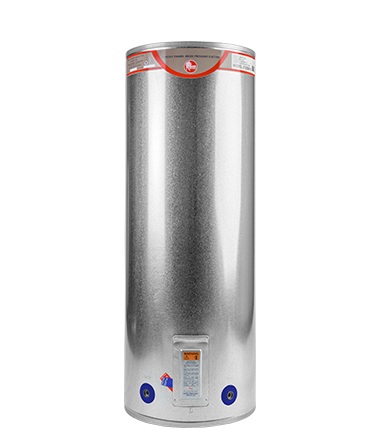Choosing the Right Hot Water Cylinder in New Zealand: A Homeowner’s Guide
Hot water is something most of us take for granted—until it runs out. In New Zealand, hot water cylinders remain one of the most popular and reliable methods for delivering hot water to homes. Whether you're replacing an old unit, building a new home, or simply looking to upgrade to a more efficient system, understanding how hot water cylinders in NZ work—and which one is best for your needs—is key to long-term comfort and energy savings.
What Is a Hot Water Cylinder?
A hot water cylinder is a tank that heats and stores water for domestic use. It’s a staple in New Zealand homes and is typically installed in a hot water cupboard, garage, or utility area. Unlike instant or continuous flow systems, hot water cylinders keep a reserve of heated water ready for use at any time.
Hot water cylinders can be powered by electricity, gas, solar energy, or even heat pumps. The type of system you choose will influence your energy costs, water pressure, and how eco-friendly your home is.
Types of Hot Water Cylinders in NZ
New Zealand households can generally choose from four main types of hot water cylinders:
1. Electric Hot Water Cylinders
These are the most common systems found in Kiwi homes. They use an electric element inside the tank to heat water and are relatively affordable to install. Electric cylinders are a good choice for smaller households or those with low to moderate hot water usage. However, they can be more expensive to run compared to gas or solar options, especially if electricity rates are high.
2. Gas Hot Water Cylinders
Gas cylinders heat water more quickly and tend to be more energy-efficient than electric models, particularly for larger households. They’re ideal for homes connected to natural gas, though they can also run on LPG (liquefied petroleum gas). Gas cylinders often offer higher water pressure and can be cheaper to operate in the long term.
3. Solar Hot Water Cylinders
Harnessing solar energy to heat your water is an excellent way to reduce your carbon footprint and power bills. These systems use roof-mounted solar collectors connected to a specially designed cylinder. While the upfront installation costs are higher, government subsidies and long-term energy savings can make solar hot water systems a wise investment—especially in sunny regions of NZ.
4. Heat Pump Water Heaters
These systems work like a refrigerator in reverse—extracting heat from the air and transferring it to the water. Heat pump systems are incredibly energy-efficient and well-suited to temperate areas of New Zealand. Though more expensive than standard electric units, their running costs are significantly lower, and they qualify for sustainability grants in some regions.
Low Pressure vs. Mains Pressure
One of the biggest decisions you'll make when choosing a hot water cylinder is whether to go with a low pressure or mains pressure system.
-
Low Pressure Cylinders: Common in older New Zealand homes, these systems operate at a lower water pressure (usually under 75 kPa). They’re generally more affordable and longer-lasting but may deliver weaker flow, especially in multi-storey homes or when multiple taps are in use.
-
Mains Pressure Cylinders: These systems are becoming the standard for new builds and renovations. They operate at the same pressure as your cold water supply, providing stronger and more consistent flow to all taps. Mains pressure systems require modern plumbing and often cost more to install but offer a much better user experience.
Key Considerations Before Buying
When choosing a hot water cylinder, it’s important to think about more than just price. Consider the following factors:
-
Household Size and Usage
A family of four will have very different hot water needs than a single-person household. Larger families may benefit from larger capacity (e.g., 180–300L) and faster recovery systems, like gas or mains-pressure cylinders. -
Available Energy Source
Do you have access to natural gas? Are you in a region with high solar potential? Is your home wired for a modern heat pump system? Your energy source will guide your decision. -
Space and Location
Cylinders take up physical space and need to be installed somewhere accessible. A cylinder in a garage may be more convenient than one tucked into a tight cupboard. -
Budget and Running Costs
While electric systems have low upfront costs, they may be more expensive to run. Solar and heat pump systems cost more initially but offer significant savings over time. -
Environmental Impact
If reducing your carbon footprint is important to you, consider solar or heat pump options. These systems are much more sustainable than traditional electric or gas heating.
Maintenance and Lifespan
Hot water cylinders can last anywhere from 10 to 20 years, depending on the model and how well they are maintained. Regular servicing, including checking the thermostat, replacing sacrificial anodes, and flushing sediment, can help extend the life of your system.
It’s also worth noting that some older cylinders contain materials that may no longer comply with modern energy efficiency standards or plumbing codes. Replacing outdated units can help lower your energy bills and improve safety.
Final Thoughts
Choosing the right hot water cylinder for your New Zealand home is about balancing comfort, cost, and long-term efficiency. With modern options like mains pressure systems, solar heating, and heat pump technologies, there’s a solution for every lifestyle and budget.
Before making a decision, consult a qualified plumber or energy advisor to evaluate your specific needs. The right system will not only keep your showers hot but also help you save money and energy for years to come.
Hot Water Solutions
3d Taid Place, Rosedale, Auckland 0632
0800497658
https://www.facebook.com/profile.php?id=100063639181369
https://www.instagram.com/hotwatersolutions/
https://nz.pinterest.com/hotwatersolutions123/
https://www.youtube.com/@HotWaterSolutions_NZ




Comments
Post a Comment